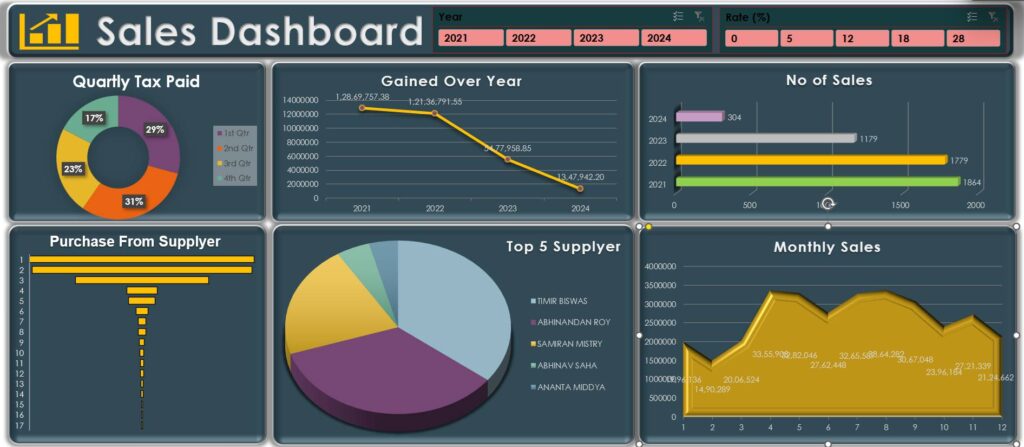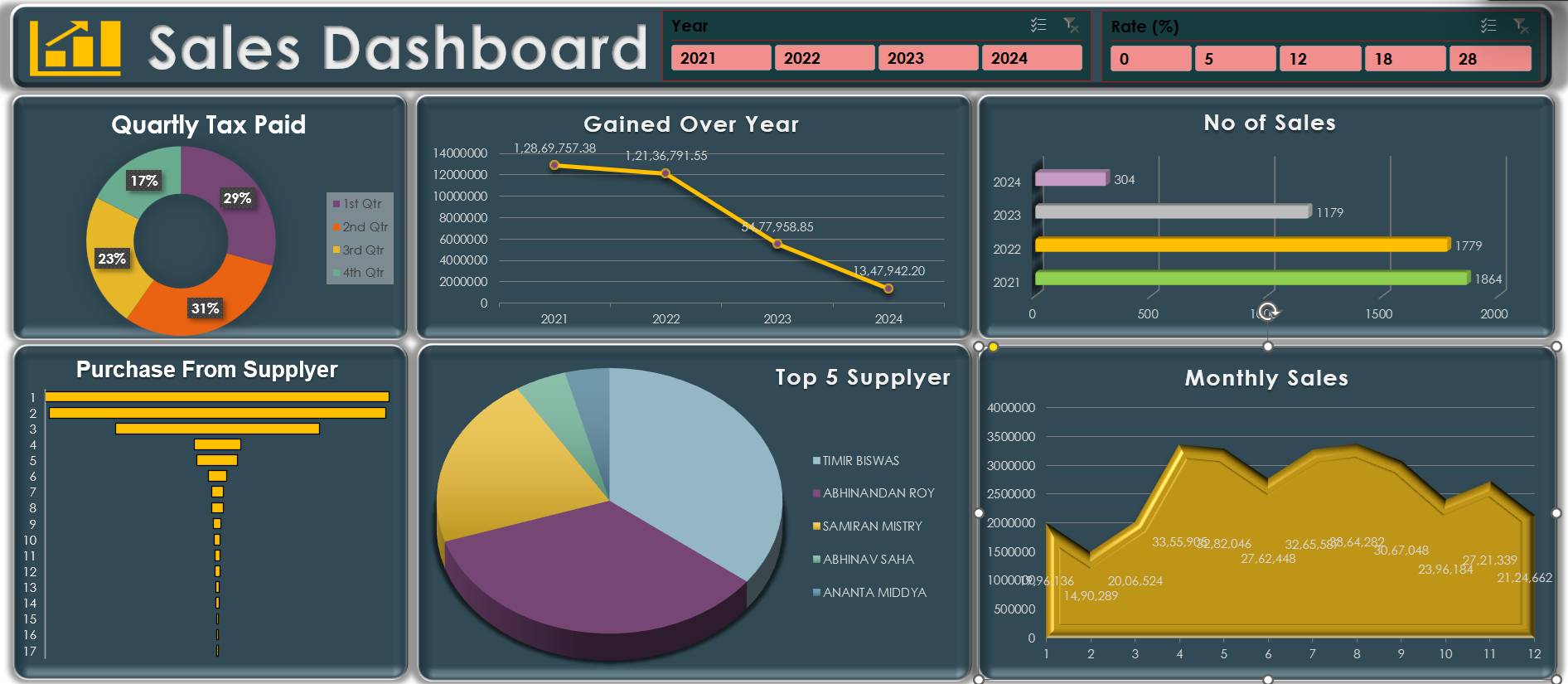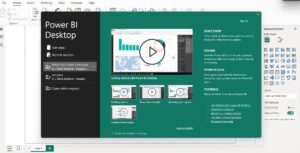In the dynamic world of data-driven decision-making, the role of a Data Analyst has become increasingly pivotal. If you’re looking to dive into this exciting field, 2024 is a promising year to begin. This guide will walk you through the essential steps to kickstart your career as a Data Analyst, from acquiring the necessary skills to landing your first job.
Why Choose a Career in Data Analysis?
Data is the new oil, and organizations across industries are investing heavily in data analytics to drive their strategies and operations. Here are a few reasons why a career in data analysis is a great choice:
- High Demand: With businesses becoming more data-centric, the demand for skilled data analysts is skyrocketing.
- Competitive Salaries: Data Analysts enjoy lucrative salary packages that reflect their valuable contribution to organizations.
- Career Growth: The field offers ample opportunities for professional development and advancement.
- Diverse Industries: Data analysts can work in various sectors such as finance, healthcare, marketing, and technology.
Key Skills Required for a Data Analyst
To thrive as a Data Analyst, you need a mix of technical and soft skills. Here’s a rundown of the essential skills:
- Statistical Analysis: A strong grasp of statistical methods and their application.
- Programming: Proficiency in languages like Python and R.
- Data Manipulation: Expertise in SQL for querying databases.
- Data Visualization: Ability to create insightful visualizations using tools like Tableau, Power BI, or Matplotlib.
- Critical Thinking: Analytical mindset to interpret data and make data-driven recommendations.
- Communication: Effective communication skills to present findings to non-technical stakeholders.
Educational Pathways
There are various educational routes to becoming a Data Analyst:
1. Bachelor’s Degree
A bachelor’s degree is often the first step toward a career in data analysis. Degrees in the following fields provide a solid foundation:
- Computer Science: Offers a comprehensive understanding of algorithms, programming, and software development. Courses in data structures, databases, and machine learning are particularly relevant.
- Statistics: Focuses on probability, statistical theory, and data interpretation. This major provides deep insights into how to analyze and infer from data.
- Mathematics: Emphasizes problem-solving skills and analytical thinking. Courses in linear algebra, calculus, and mathematical modeling are beneficial.
- Economics: Teaches how to analyze data to understand economic trends and behaviors. Econometrics is a key area of focus.
- Business Administration: Provides knowledge of business processes and data-driven decision-making, with an emphasis on courses in business analytics.
2. Online Courses
Online courses are a flexible and cost-effective way to gain specialized skills in data analysis. Some popular platforms include:
- Coursera: Offers courses and specializations from top universities. Popular options include “Data Science” from Johns Hopkins University and “Data Analysis and Presentation Skills” from PwC.
- edX: Provides courses from institutions like MIT and Harvard. Consider taking “Data Science MicroMasters” from MIT.
- Udacity: Known for its “Nanodegree” programs, such as “Data Analyst Nanodegree” which covers Python, statistics, and data visualization.
3. Bootcamps
Bootcamps are intensive, short-term programs designed to teach you practical data analysis skills quickly. Some reputable bootcamps include:
- General Assembly: Offers a “Data Analytics” bootcamp that covers data analysis, visualization, and SQL.
- DataCamp: Provides interactive courses focused on data science and analytics, including practical projects.
- Springboard: Their “Data Analytics Career Track” offers a mentor-guided curriculum with a job guarantee.
4. Certifications
Certifications can enhance your resume and validate your skills to employers. Some valuable certifications include:
- Microsoft Certified: Data Analyst Associate: Focuses on using Microsoft Power BI to maximize the value of data assets.
- Google Data Analytics Professional Certificate: Provides a comprehensive introduction to data analytics, including tools like R, spreadsheets, and Tableau.
- IBM Data Analyst Professional Certificate: Covers data analysis, visualization, and Python, with hands-on labs and projects.
5. Master’s Degree
While not always necessary, a master’s degree can provide advanced knowledge and open up higher-level job opportunities. Consider programs such as:
- Master’s in Data Science: Comprehensive programs that cover advanced data analysis techniques, machine learning, and big data technologies.
- Master’s in Business Analytics: Focuses on applying data analysis in a business context to drive strategic decisions.
- Master’s in Applied Statistics: Emphasizes statistical techniques and their applications in various fields.
6. Self-Learning
Self-learning is a valuable complement to formal education. Resources include:
- Books: “Python for Data Analysis” by Wes McKinney, “Data Science for Business” by Foster Provost and Tom Fawcett.
- Online Resources: Websites like Kaggle offer datasets and competitions to practice your skills. GitHub repositories can provide examples of real-world projects.
- Tutorials and Webinars: Many industry experts and organizations offer free tutorials and webinars on platforms like YouTube and LinkedIn Learning.
Building Your Portfolio

A well-crafted portfolio is crucial to showcase your skills to potential employers. Here’s how to build one:
- Projects: Work on real-world projects that demonstrate your ability to analyze data and derive insights.
- Kaggle Competitions: Participate in Kaggle competitions to solve challenging problems and gain exposure.
- GitHub Repository: Maintain a GitHub repository with your projects, code, and documentation.
- Blogging: Write about your projects and data analysis techniques to establish yourself as a thought leader.
Job Hunting Tips
Landing your first data analyst job can be challenging, but these tips can help:
- Networking: Connect with professionals in the field through LinkedIn, meetups, and industry conferences.
- Tailored Resumes: Customize your resume and cover letter for each job application, highlighting relevant skills and experience.
- Prepare for Interviews: Be ready to answer technical questions and solve case studies during interviews.
- Continuous Learning: Stay updated with the latest trends and technologies in data analytics.
Conclusion
Starting a career as a Data Analyst in 2024 is an exciting and rewarding journey. By acquiring the right skills, building a strong portfolio, and strategically navigating the job market, you can position yourself for success in this rapidly evolving field. Remember, the key to thriving as a Data Analyst is continuous learning and adapting to new challenges. Good luck!




